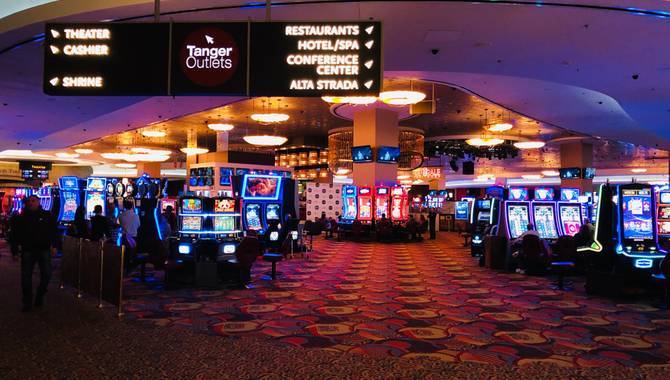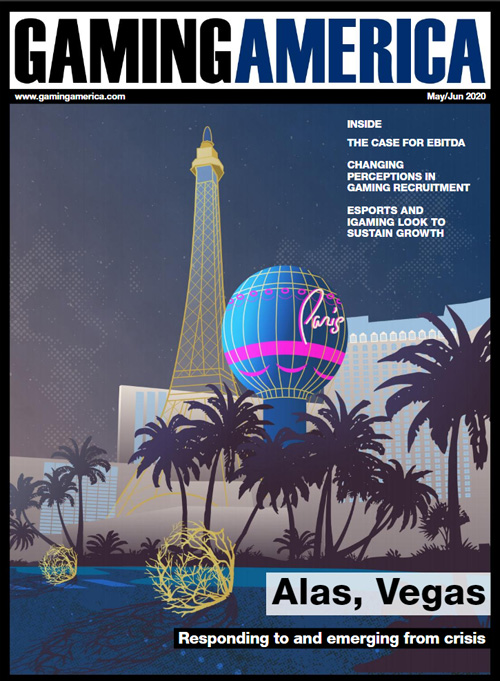
With most of the American casino industry shut down, the impact on companies, employees and communities has been huge. Scenes from the Las Vegas Strip depict more of a ghost town than one of the most popular entertainment centers in the world. As a “non-essential” industry, the casino industry has been hit harder than many during the Coronavirus pandemic.
With many potential customers around the country also struggling, recovery may not be easy as well. Tribal casinos are one segment that may face even more significant challenges. Gaming activities and revenue often help fund numerous aspects of a tribe’s livelihood including health care, education and much more. Native American communities are reliant on those operations for their day-to-day operations and infrastructure.
With the industry in uncharted territory, many tribal gaming operations find themselves not only in a fight for their business and members’ well-being, but for the fiscal future of the tribe itself. Are tribes prepared for the current economic calamity, and what does the future look like?
Cold reality
Stark numbers face the gaming industry as a whole. For many tribes, gaming revenue has been instrumental in self sufficiency for over thirty years. Beyond that, their gaming operations employ more than 600,000 people, and as many as 40% of those have now lost their jobs and income.
“The nationwide casino closures in response to the COVID-19 pandemic are devastating to the entire gaming industry, with every commercial and tribal gaming property in the United States having shuttered their doors,” said Casey Clark, American Gaming Association senior vice president of strategic communications.
In April, Meister Economic Consulting released a study outlining the growing economic impact the pandemic has had on tribal gaming. That includes the closing of more than 500 gaming facilities operated by 246 tribes in 29 states.
During the first two weeks of closure, Meister estimated $1.5 billion in lost economic activity including gaming and non-gaming revenue to tribal casinos. Other numbers include: 296,000 people out of work; $332 million in lost wages; and $240 million in lost taxes and revenue to federal, state and local governments.
“These closures are causing significant detriment to Native American tribes,” Clark added, “many of which rely heavily on gaming-related revenue to pay for tribal government operations, infrastructure and social and economic programs and services for a Native American population that is already substantially disadvantaged.”
Massive enterprises
While some may think of tribal gaming operations as smaller casinos with minimal footprints, there’s actually a trend toward more expansive, growing operations. Tribal casinos have a huge impact on the casino industry as a whole.
The Seminoles in Florida may serve as an example of how significant tribal gaming has become. The group is believed to have been in the state as early as the 1500s. The Indian Removal Act of 1830 relocated many in the tribe to Oklahoma in part of what became known as the “Trail of Tears.” However, about 200 fled deep into the Everglades, where they hid for decades and are now officially known as the Seminole Tribe of Florida.
The tribe has more than 4,200 members who live on and off reservations located in southeast and southwest Florida. With its own constitution and governmental leadership, the tribe is headquartered in Hollywood and was a pioneer of Indian gaming after opening a high-stakes bingo hall in 1979. There are now six tribal gaming properties including the Seminole Hard Rock in Hollywood.
In 2007, the tribe even purchased Hard Rock International, one of the world’s mostrecognized restaurant, hotel and casino brands with 190 cafes, 30 hotels and 11 casinos in 75 countries. The Seminoles employ more than 20,000 people, including 10,000 in their Florida gaming operations, and 7,000 at Hard Rock International. Another 15,000 are employed by global Hard Rock licensees.
Those enterprises greatly benefit tribe members. The Seminoles operate schools on its Brighton and the Big Cypress reservation, and gaming funds helped build new school buildings with state-of-the-art technology. Such technology has naturally enabled distance learning from home for students during the pandemic. Casino revenues also help fund governmental operations, health care, elder services, historic and cultural preservation, economic development opportunities, and dividends paid to tribal members.
Certainly business closures aren’t easy with reduced revenue, but the Seminoles are weathering the financial storm. Unlike some traditional commercial gaming companies, the tribe seemed to be prepared for an economic downturn.
“The Seminole tribe continues to be in a strong financial position, due to its low debt ratio, significant reserves and prudent management,” spokesman Bary Bitner said. “As a result, there has been minimal impact. Essential governmental services continue to be provided.”
As of mid-April, tribal leadership continued to monitor when it might be appropriate for its operations to reopen.
Critical to communities
Also in the southeast, The Poarch Band of Creek Indians of Alabama runs three Wind Creek casino properties and one mobile greyhound racing facility in the state. The Poarch is the only federally recognized tribe in the state and has had a presence in the area for more than 200 years.
Unlike many tribes in the eastern part of the US, the group was never removed from its lands. Like the Seminoles, the Poarch have greatly made use of tribal gaming to benefit members. Those efforts have included branching out into other states and even other countries.
Along with properties in Alabama, the tribe also owns two casinos on the islands of Aruba and Curaçao, as well as the Wa She Shu Casino in Nevada and the Pensacola Greyhound Track in Florida. Much of that success benefits its 2,900 tribal members in the form of health care, education, housing, fire and police protection, utilities and an overall improved quality of life.
Like the Seminoles, rather than see the pandemic solely as another time of struggle or economic downturn, tribal leaders point to advances made that have put it in a position to serve members during such an unfortunate time. A key result of economic improvement has been preparedness, and that includes helping others.
“The Poarch Band of Creek Indians has a long-held mantra, ‘Seeking prosperity and self-determination,’ and we continue to stay true to it during these difficult days,” said Megan Young, Poarch director of strategy and special projects. “As the tribe has become increasingly successful over the years, the communities in which we have our businesses and other operations have also benefited.
“Not only have our business interests created economic stimulus and job opportunities for tribal and non-tribal citizens alike … we are also fortunate to be able to generously give to those in need through our philanthropic and charitable efforts.”
Like other businesses, however, the tribe hasn’t been immune from the effects of operational closures. Young credits strong tribal leadership for being careful stewards of resources, and that has translated into a positive outlook on the future once American life and the gaming industry returns to normal.
“Even as the virus has radically changed the way we live and work in the past few weeks, we are able to maintain our solid financial position,” she added. “While we face a future with many uncertainties, of this the tribe is sure: we are all in this together, and we will bounce back stronger than before.”
Looking ahead
Recovery from such an impact to the industry and US economy won’t be easy, but tribal casinos have a distinct vantage point. As a people, Native Americans have persevered from hardship for generations and tribes have reaped major improvements for their people over the last few decades.
As the Seminole and Poarch Creek Indians show, that spirit of self-reliance and determination remain. Rather than fear the future, both tribes have worked to ensure the physical and financial health of their members and employees, and gaming has played a major role in that.
This may not be the case with all tribes however, and many in the industry recognize that. Many challenges remain even when properties reopen. The AGA is working with members and regulators to identify best practices, protocols and regulations for ensuring a safe environment for customers.
Adjusting to reduced workforces and customer demand will also be a struggle. In response, the AGA continues working with the federal government in hopes to bring additional relief to all sectors of the gaming industry, including the successful fight for $8 billion in aid for tribal communities impacted by COVID-19 as part of its CARES Act advocacy.
“But our work is far from done,” Clark continued. “We will continue to push for the highest priority relief measures in each successive package so the gaming industry has the resources needed to reopen our doors when it’s safe to do so. This is a resilient industry and I’m confident we will come back strengthened by this crisis.”
Sean Chaffin is a freelance writer in Crandall, Texas, and also the writer and host of the True Gambling Stories podcast. Follow him on Twitter @PokerTraditions or email him at [email protected] for story assignments.

